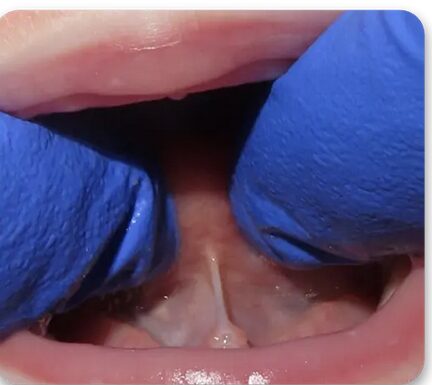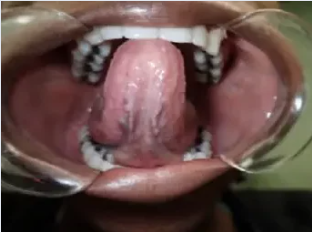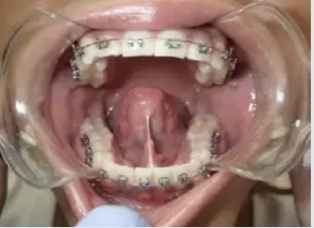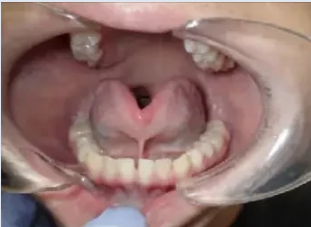Tongue & Lip Ties
Tongue & Lip Ties Are Real Conditions With Potential Health Consequences for Infants & Toddlers.

what is a tongue tie.?
Tongue-tie (ankyloglossia) is a condition in which an unusually short, thick or tight band of tissue (lingual frenulum) tethers the bottom of the tongue’s tip to the floor of the mouth.
Signs & Symptoms of Tongue Ties in Toddlers
- Difficulty consuming solid foods
- Hampered and/or delayed speech development
- Chronic mouth breathing
- Snoring
- Poor Sleep
- Behavioral Problems
- Slow Learning
Functional Classification of Ankyloglossia Based on Tongue Range of Motion (TRMR)

Grade 1 Functioning: TRMR > 80%

Grade 2 Functioning: TRMR 50-80%

Grade 3 Functioning: TRMR < 50%

Grade 4 Functioning: TRMR < 25%
What Happens If The Problem Is Not Treated
Left untreated, a restricted tongue can, and quite often does, set off a cascade of structural problems that can lead to these problems and many others as children grow
- Symptoms that mirror ADD/ADHD
- Fatigue and lack of energy
- Pediatric OSA or other sleep-related breathing disorders
- Poor performance at school an in sports
- Crowded and crooked teeth
- Narrow upper and lower jaws
- Long faces
- Flat cheeks/weak profile
- TMJ pain & other jaw joint problems
What is Lip tie.?
A lip tie is a condition where the skin of the upper lip is attached to the gums in a way that prevents lip movement and makes breastfeeding difficult for your baby.
Why We DO NOT RECOMMEND Putting off Treatment for Tongue Ties
Proper functioning of the tongue is directly related to airway health, proper facial growth and jaws that develop to their full potential. A restricted tongue can (and quite often does) set off a cascade of structural problems that can lead to
- Difficulty consuming solid foods
- Hampered and/or delayed speech development
- Chronic mouth breathing
- Snoring
- Symptoms that mirror ADD/ADHD
- Fatigue and lack of energy
- Poor Sleep
- Difficulty consuming solid foods
- Hampered and/or delayed speech development
- Chronic mouth breathing
- Snoring
- Symptoms that mirror ADD/ADHD
- Fatigue and lack of energy
- Poor Sleep
Two World Leaders in Sleep & Airway Talk About the Long Term Implications of Untreated Tongue & Lip Tie
Dr. Soroush Zaghi received his medical degree from Harvard Medical School & completed his residency in ENT (Otolaryngology- Head and Neck Surgery) at UCLA, followed by a Sleep Surgery Fellowship at Stanford University& is the Founder of The Breathe Institute and a pioneer in tongue tie diagnosis
Dr. Jerald Simmons is triple board-certified in Neurology, Epilepsy, and Sleep Medicine.
Functional Frenuloplasty - The Tongue Tie Release Surgical Procedure
[Functional tongue release surgery - the frenuloplasty procedure]
A tongue tie occurs when the frenulum, the tissue connecting the tongue to the bottom of the mouth, is too tight, short, or improperly positioned. This condition can be treated through a minor surgical procedure called a tongue tie release, or frenectomy. However, a common complication is the re-attachment of the frenulum, where it grows back to its original state. To reduce this risk, a team-based approach and well-researched protocols are used. Dr. Green and her team follow a functional frenuloplasty method, incorporating myofunctional therapy, and sometimes craniofacial therapy, before and after surgery to ensure better outcomes.
